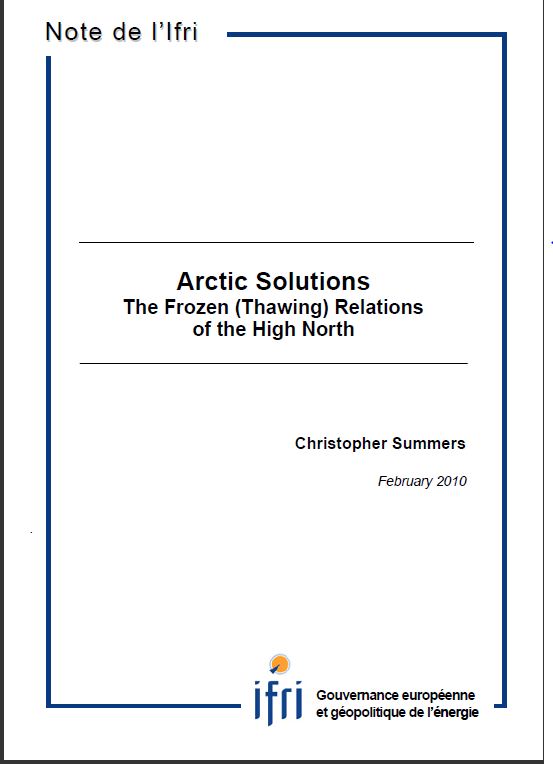Arctic Solutions: The Frozen (Thawing) Relations of the High North

It’s cold, inhospitable and deadly. The image of the Arctic in years past is one of bewilderment, ignorance and awe. How the image of the Arctic has changed in recent years can be directly linked to our recognition that the Arctic has a great deal to offer in meeting the basic needs of future generations.
Although we are still in awe of the Arctic’s cruel beauty, new technologies are making it easier to explore the once unmanageable environment. The Arctic has moved into the mainstream with a host of suitors jockeying for position in the race to possess the Arctic and all that it contains. To highlight this increased interest, Russia’s „National Security Until 2020‟ initiative, has upgraded the High North to one of Russia’s main priorities and identifies the Arctic as liable to produce military conflict in the future linked to competition for the Arctic’s abundant raw materials. Even Canada, a peaceful and respectful country, has stepped outside the box of traditional Canadian rhetoric by giving Canada’s Northern Strategy a tagline: “Our North, our heritage, our future”. The Arctic is increasingly viewed as central to meeting the challenges of an ever changing world where climate change and economic benefit drive international agreements and policies. However, Canada and Russia are not the only actors here. The other Arctic Five states: Denmark, Norway, and the United States of America all lay claims to some area or activity within the Arctic region. The Arctic is a unique part of this world, one that has been left largely untouched by human hands, and one that is on the brink of being changed forever.

Available in:
Regions and themes
ISBN / ISSN
Share
Download the full analysis
This page contains only a summary of our work. If you would like to have access to all the information from our research on the subject, you can download the full version in PDF format.
Arctic Solutions: The Frozen (Thawing) Relations of the High North
Related centers and programs
Discover our other research centers and programsFind out more
Discover all our analysesPlacing the EU on a Warfare Footing: Energy and Raw Materials Priorities for 2026
The year 2025 has confirmed that one must prepare for much worse in the field of geopolitics and geoeconomics as the intensity and frequency of shocks increase and as the European Union (EU) has no more stable flanks now that crises with the United States (US) become so frequent and reveal a systemic rift. In the world, barriers to trade multiply and dependencies are weaponized.
Brazil One Year Away from the October 2026 General Elections
Brazil’s general elections will be held on October 4, 2026, to elect the president, vice-president, members of the National Congress, governors, deputy governors and state legislative assemblies. For the presidential and gubernatorial elections, a second round will be held on October 25 if no candidate obtains a majority of the votes in the first round.
COP30: An Inflection Point for Climate Action and Governance
The 30th Conference of the Parties (COP30), opening in Belém, Brazil, on November 10th 2025, convenes at a perilous moment.
The Strategic Dimension of Skills in the Clean Industrial Deal
In the competitiveness and energy transition battles, the European Union (EU) must master a determinant factor: skills.










